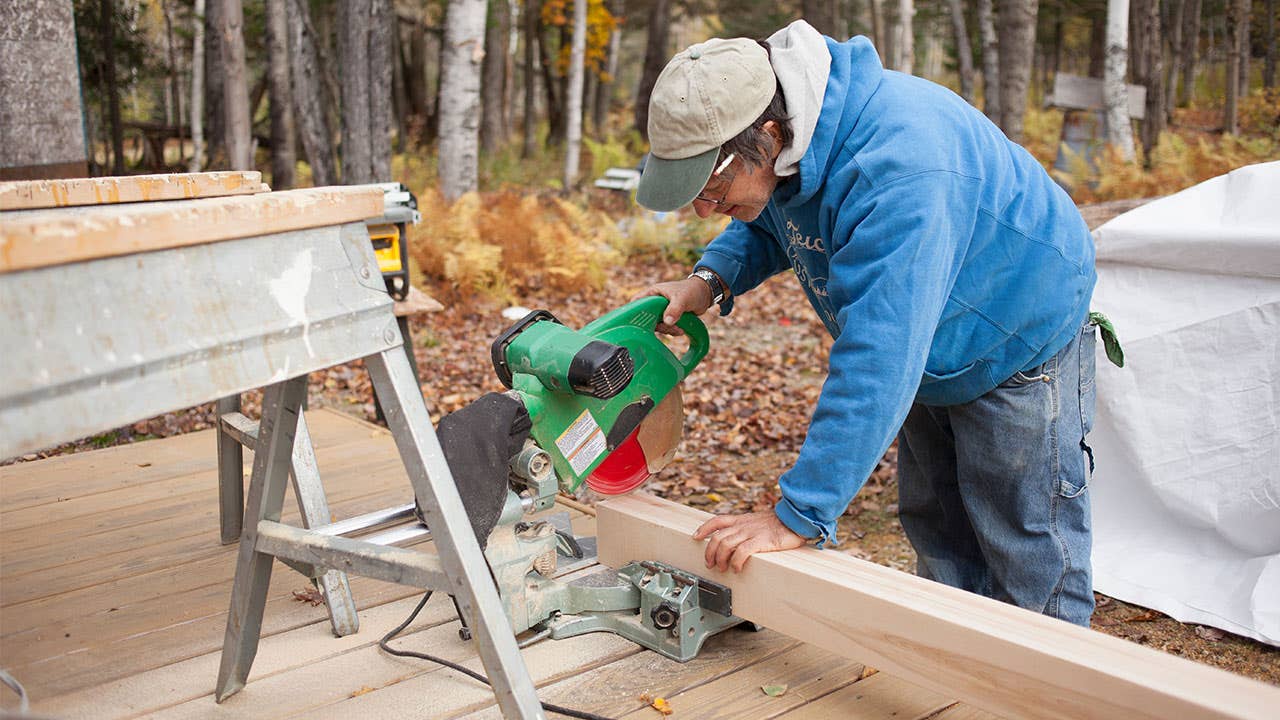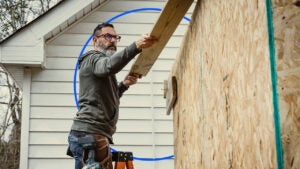Government grants for home improvements




Key takeaways
- Home repair grants can give you money to improve your house — but they usually come with strict eligibility requirements.
- Grants for home improvements often come from federal or state agencies.
- You can only use a grant for home renovations that make your property safer or more accessible, not for cosmetic improvements.
If your home needs repairs to remove health or safety hazards, you might look into grants for home improvements, also called home repair grants. Most have strict eligibility criteria. However, if you do qualify, they can be a great source of financing for your home improvement project.
What are home improvement grants for homeowners?
A grant is a form of financial aid that the recipient doesn’t have to repay. Home improvement grants may be available from federal, state and local governments, along with other organizations.
You must use the money from these grants to repair health and safety hazards or make the home more handicap accessible. They’re not available for cosmetic home improvements.
Since tax revenues fund government-backed grants for home improvements, they frequently have strict rules and auditing procedures. Many grants are competitive; even if you qualify for a grant, you may not necessarily receive it. To boost your likelihood of getting the grant, you should apply for it as soon as possible.
Types of home improvement grants
The Home Investment Partnerships Program (HOME)
- Who can apply: Eligibility requirements for HOME include meeting household income limits set by the U.S. Department of Housing and Urban Development (HUD). Income limits vary by metro area. For instance, a single person making $109,000 in San Francisco would qualify as low-income. In Columbus, Georgia, the threshold is $39,500. There are also limits on the value of the property for which you receive a subsidy.
- What you can use it for: HOME funds can take the form of grants, loans and loan guarantees, and they can be used to buy, build or repair a home, or for assistance with rental costs and security deposits.
Section 504 Home Repair Program
- Who can apply: Homeowners who qualify as “very low income” for their metro areas can apply for the Section 504 Home Repair Program. You must be a homeowner and live in the home. In addition, you must be unable to qualify for affordable funding options elsewhere. To qualify for grants, you must be at least 62 years old.
- What you can use it for: Repairs and renovations to make homes safe and livable.
Native American Housing Improvement Program
- Who can apply: You must be a member of a federally recognized American Indian tribe or be an Alaska Native to apply for the Native American Housing Improvement Program. In addition, recipients must: live in an approved tribal service area, have an income that is within 150 percent of the U.S. Department of Health and Human Services (DHHS) Poverty Guidelines, live in a home that’s considered “substandard,” be unable to get housing assistance elsewhere, and have not acquired your current home through a federally sponsored housing program that includes such housing assistance.
- What you can use it for: This program offers up to $60,000 for repairs or renovations to help improve properties and bring them up to code.
Area Agency on Aging
- Who can apply: Senior citizens. Eligibility requirements vary by state and county. To learn more, search for your local program.
-
What it can be used for: Improving your home to make it more livable.
Home improvement grants for veterans
VA Specially Adapted Housing (SAH) Grant
- Who can apply: Veterans who own their homes and have service-connected disabilities.
- What it can be used for: The SAH grant provides support for building, remodeling or purchasing an adapted home. The maximum amount of funding available through this grant for 2024 is $117,014.
VA Special Home Adaptation (SHA) Grant
- Who can apply: Veterans who either own a home or live with a family member who does and have qualifying service-related disabilities.
- What it can be used for: To buy, build or remodel your permanent residence. In 2024, the maximum amount available per grant recipient was $23,444.
VA Temporary Residence Adaptation (TRA) Grant
- Who can apply: Veterans who are eligible to receive a SAH or SHA grant and temporarily live in a family member’s home that requires modifications to accommodate disabilities.
- What it can be used for: Modifications to make a temporary home more accessible. Recipients can receive up to $47,130 if they qualify for an SAH grant or up to $8,415 if they qualify for an SHA grant.
How to apply for home improvement grants
You can look for federal home improvement grants for homeowners in your area by contacting your local HUD office or visiting its website. You’ll also find information on applying.
The National Residential Improvement Association (NRIA) can also help you find free home repair grants. You’ll have to fill out a questionnaire to see what type of financial aid you qualify for.
When applying for grants for home improvements, be prepared to provide a variety of personal information and documentation — including proof of your annual income, which determines eligibility for most programs.
Many programs require proof of additional qualifications. For instance, some grants may require documentation regarding disabilities, while others require confirmation that you’re a member of a recognized American Indian tribe. Other programs require proof of assets and employment.
Who is eligible for home improvement grants?
The qualifications for home improvement grants are specific to each grant but are usually very strict.
For example, to qualify for HUD’s HOME Program, the purchase price or after-rehabilitation value of the home cannot exceed 95 percent of the median purchase price in the area for a single-family dwelling. HUD also determines income limits which vary by metro area.
Check the specific eligibility guidelines for the grant you want to apply for to see if you qualify.
What other forms of financial assistance are available for home improvements?
If you’re not eligible for a home improvement grant but still can’t afford to make the repairs you need on your own, consider these alternatives:
- Low-cost loans: Some organizations, such as the USDA and HUD, also offer affordable loans to lower-income homeowners. Keep in mind, unlike grants, you’ll need to repay the loan over time.
- Tax benefits: Some home improvements may qualify for a tax deduction, such as adding a ramp to accommodate a disabled family member. Others may qualify for a tax credit, such as improvements that increase your home’s energy efficiency. However, home improvements are not normally deductible as personal expenses.
- Cash-out refinance: A cash-out refinance lets you turn some of your home equity into cash that you can use for other purposes, including home improvements. In some cases, the interest on these loans is tax-deductible if used for a capital home improvement. Another perk is that cash-out refinance rates are usually lower than rates for other types of loans. Just keep in mind that you’ll be increasing your mortgage balance and potentially your loan term.
- Home equity loan or home equity line of credit: Rising mortgage rates have made cash-out refinances less appealing. A home equity loan or home equity line of credit (HELOC) lets you tap equity without touching your primary mortgage. The proceeds can be used for any purpose, including renovations and repairs.
- Weatherization Assistance Programs: These grants help low-income households increase their home’s energy efficiency. To apply, contact your state weatherization agency.
You may also like

How to get a personal loan with low interest rates

How to pay for home improvements


